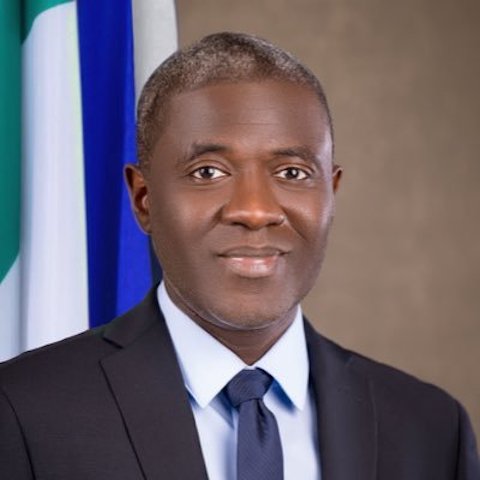Emmanuel Thomas I Tuesday, November 05, 2024
LAGOS, Nigeria – Judicial officers in Nigeria have been told to constantly adapt to ensure that the rule of law is effective and enforceable in the online realm as it is in the world of brick and mortar.
Executive Vice Chairman and Chief Executive Officer of the Nigerian Communications Commission, NCC, Dr. Aminu Maida gave the advice in his welcome address at the 2024 edition of judges workshop in Lagos with the theme, “The role of the judiciary in accelerating digital transformation in Nigeria’.
He is of the view that as the digital age advances, judicial officers must constantly adapt to ensure that the rule of law is as effective and enforceable in the online realm as it is in the world of brick and mortar, stressing that a key challenge lies in adapting existing legal principles to the complexities of emerging and evolving technologies.
He said that Nigerians are eager to see a new chapter of digital justice, where the roles played by the judiciary are effectively translated and adapted into online contexts as in protecting fundamental rights, enforcing digital contracts and resolving disputes, developing digital jurisprudence and promoting innovation.
Maida said that over the years, telecommunication infrastructure has suffered from disruptions due extensive damage from vandalism and theft, fiber cuts by construction companies and even restricted access that prevents operators from servicing critical infrastructure hence the need for special protections to be accorded to these assets to ensure continuous connectivity and reliable communication services.
He explained that drawing from the powers granted under the Cybercrimes Act of 2024 to designate what may be characterized as Critical National Information Infrastructure, President Bola Ahmed Tinubu, in July 2024, signed a Presidential Order that designates all telecommunications infrastructure as Critical National Information Infrastructure.
“With this Presidential Order, Nigeria now has a comprehensive policy framework to protect vital telecommunication assets—from base stations and data centers to fiber optic cables. This framework strengthens our ability to decisively confront issues such as vandalism, illegal tampering, and preventing access to communications infrastructure, holding violators accountable to deter future offenses.
“Under this Order, individuals, organizations, or even government agencies are prohibited from sealing, removing, or damaging telecommunications infrastructure without a lawful court order”, he said, anticipating that the courts may occasionally receive requests for orders to grant exceptions to the protections afforded to these Critical National Information Infrastructures.
He said that the Office of the National Security Adviser, which plays a central role in coordinating the operationalisation of the Presidential Order, has already begun stakeholder consultations and meetings to facilitate immediate implementation.
“It is likely that, in the near future, vandals, thieves, and others who breach this Order’s provisions will be brought before your courts. We trust that with a deeper understanding of the harm and disruption caused by such actions, the judiciary will impose appropriate sanctions to serve as strong deterrents against criminal activity”.
In his keynote address, the Chief Justice of Nigeria, CJN and Chairman Board of Governors, National Judicial Institute, Justice K.M.O. Kekere-Ekun, GCON drew attention to two key issues, the increased risk of the personal data of consumers being misused or compromised by unscrupulous persons, thus necessitating the need for improved strategies and innovation for consumer protection in the telecommunications sector and deficiencies in the banking sector and which are attributable to reliance on digital services provided by the telecommunications sector.
“There is for instance the major challenge posed by electronically backed transactions which is common place in the Banking Sector. Concerns in this regard include the spate of customers whose online banking platforms have been hacked, as well as banks being compromised due to technological glitches not factored into their day to day operations. Consequently, these and several other challenges have resulted in a number of disputes which frequently require adjudication”, she said.
Nevertheless, Justice Kekere-Ekun assured that the Nigerian Judiciary is committed to the development of the Telecommunications Sector and will continue to ensure coherence in the interpretation of the relevant laws as well as transparency and efficiency in the dispensation of justice.
